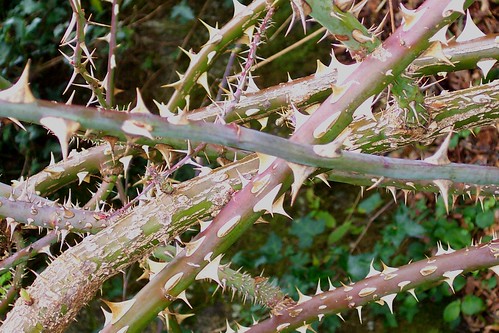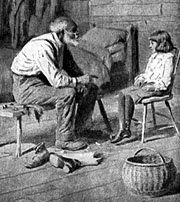 SEE HERE Just how dangerous are genetically modified crops? I'm a decided fence sitter on a question like this because I'm not knowledgeable about it and I'm inclined to opt for caution when I'm in explicit ignorance. That being said there's an adage that a co-worker of mine said to me long ago which I always hold to in situations like this. We were walking across an aircraft hanger at the Naval Air Development Center which was then developing the ANEW-System for the first centralized computer system on a Naval patrol aircraft. We were talking about complexity and who really understood the whole system. We concluded that really no-one understood the whole system which mean that there could be unforeseen emergent behavior. At that point my companion said (we were both student trainees at the time): "My dad says it is all a game of who do you trust!" That comment has stuck with me all these years, almost fifty now, and later I talked about it with my own dad who was a Rear Admiral and he seconded the concept saying that whenever he assumed a new command he would find old-hands that he trusted because he knew he didn't know the organization and its dynamics and customs.
SEE HERE Just how dangerous are genetically modified crops? I'm a decided fence sitter on a question like this because I'm not knowledgeable about it and I'm inclined to opt for caution when I'm in explicit ignorance. That being said there's an adage that a co-worker of mine said to me long ago which I always hold to in situations like this. We were walking across an aircraft hanger at the Naval Air Development Center which was then developing the ANEW-System for the first centralized computer system on a Naval patrol aircraft. We were talking about complexity and who really understood the whole system. We concluded that really no-one understood the whole system which mean that there could be unforeseen emergent behavior. At that point my companion said (we were both student trainees at the time): "My dad says it is all a game of who do you trust!" That comment has stuck with me all these years, almost fifty now, and later I talked about it with my own dad who was a Rear Admiral and he seconded the concept saying that whenever he assumed a new command he would find old-hands that he trusted because he knew he didn't know the organization and its dynamics and customs.
In a similar way when we encounter new technology it is entirely reasonable to proceed with caution but also to recognize the great potential. Genetic modification of plants is not a new idea. People have been breeding genetic plant modification using hybridization and other methods for many years. The newer methods are less well understood and could prove to be very powerful. With great power comes the potential for great danger. I would look to motivations. I'm not happy with folks trying to patent plants like Monsanto and people who seem to be trying to breed in sterility (yeah that's what we need plant genes designed to spread non-fertility). I think we should demand to know the benefits and dangers. However, government isn't always the best agent. Follow the money and find people with real knowledge and expertise that you trust. Agenda driven science is always bad science. Watch out for policy wonks pretending to be scientists. That being said, genetic engineering has great promise for good.









My uncle, Dr. Walter E. Lammerts, is best known as a rose hybridizer (Queen Elizabeth, Chrysler Imperial, Blaze, etc), an entomologist, and co-founder of the Creation Research Society. We had many discussions about this subject years and years ago. He would not be in favor of what Monsanto is doing - in particular the sterilization of seeds. He recognized that there is a point beyond which we should not be treading. Humans have a tendency to want to meddle in things that create unintended consequences - usually bad.
ReplyDeleteAs to the sterilization of seeds - we already have a form of that with hybrids which won't reproduce to kind. It one of the reasons people are stockpiling non-hybrid seeds. While I do plant hybrid seeds, I also make sure I have non-hybrid veggies and save seeds.
All of the above I'm sure you know being the smart guy you are ... ;-)
I'm sure I'd never have the patience to be a rose hybridizer Adrienne. I certainly agree with your uncle though. I've collected seeds from my tomatoes sometimes and had the fun experience of seeing the effects of unintentional hybridization caused by growing cherry tomatoes next to other cultivars and then planting seeds and getting a tomato with characteristics that are in between. Now if I just had the patience I might have fun with that as an experiment. The whole seed business is quite fascinating.
ReplyDelete